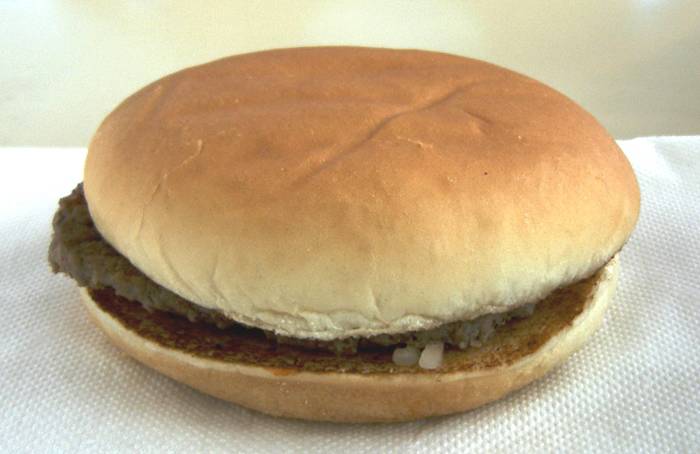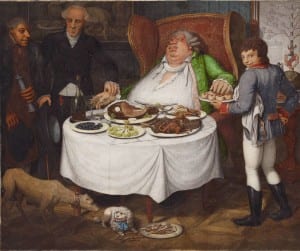 Obesity is a serious problem in the United States. According to the Center for Disease Control, one-third of the children in the United States are overweight or obese. Children who are overweight are at higher risk for a myriad of health maladies, such as cardiovascular disease, higher risk for diabetes, and bone and joint issues. In addition to physical health issues, there are also mental health issues related to obesity, such as poor self-esteem and risk of bullying due to the stigmatization from their peers.
Obesity is a serious problem in the United States. According to the Center for Disease Control, one-third of the children in the United States are overweight or obese. Children who are overweight are at higher risk for a myriad of health maladies, such as cardiovascular disease, higher risk for diabetes, and bone and joint issues. In addition to physical health issues, there are also mental health issues related to obesity, such as poor self-esteem and risk of bullying due to the stigmatization from their peers.
Despite the concerns about obesity, the Washington County School District Foundation has entered into a partnership with McDonald’s to sponsor hamburger eating contests at the Spooky Town Fair this weekend in downtown St. George. There are currently three hamburger eating contests: the first for children up to 12 years of age, the second for 13-17 year-olds, and the the final for adults.
According to the Washington County School District Foundation website, the purpose of the foundation is “Pam Graf, the director of the Washington County School District Foundation, said that the hamburger eating contests at Spooky Town Fair were only meant for fun.
“Why would we have a pie eating contest? Why would we have a watermelon eating contest?” Graf said. “It’s just something fun to do. I don’t see that there is anything wrong about it.”
When it was suggested that McDonald’s hamburgers were a less-than-healthy choice, Graf stated that a pie eating or ice cream eating contest would be just as unhealthy.

I think you’re kind of grasping here,” Graf told The Independent. “Because McDonald’s is a great sponsor for the school district and supports us, I don’t want to have anything go out there negative about them.”
A check of McDonald’s posted nutrition list shows that their standard hamburger has 250 calories, 70 calories from fat (8 grams), 30 mg of cholesterol, and 490 mg of sodium on average. Given these numbers, the potential for a child to exceed their recommended daily intake limits in one sitting via an eating competition is highly probable.
Why would we have a pie eating contest? Why would we have a watermelon eating contest? It’s just something fun to do. I don’t see that there is anything wrong about it.
According to the Harvard University Health Blog, children who ate fast food three times per week or more had a markedly high increase in asthma, rhinitis (a condition that manifests in a chronic stuffy nose) and eczema. The risk for increased asthma was remarkable particularly among teens—as much as a 39 percent increase in risk—while for younger children, that number was still at 27 percent.
The fast food industry has been known to target children with advertising which has been shown to have a direct correlation to an increase in obesity. According to a report by the American Psychological Association (APA), the connection between advertising and increased weight is well documented.

“Studies have documented that a high percentage of advertisements targeting children feature candy, fast foods, and snacks and that exposure to such advertising increases consumption of these products,” the report states. “While consumption of nonnutritious foods per se may not be harmful, overconsumption of these products, particularly to the exclusion of healthier food, is linked to obesity and poorer health. Several studies have found strong associations between increases in advertising for nonnutritious foods and rates of childhood obesity.”
According to another article by the APA, despite a resolution to do a better job to “self-regulate” the marketing of their products to children, the fast food industry has done little to increase the consumption of healthier foods. The article states that nearly three out of every four foods advertised can be considered unhealthy and contributing to the rise of obesity.
The problematic thing I see is that you are teaching these kids that food is sport and entertainment rather than something to fuel and nourish the body and keep us feeling healthy and strong and able-bodied and able-minded.
Recently, Men’s Health Magazine published an article in which six adult men spent a single week eating 6000 calories of fast food per day. After just two days of eating this diet, the men had already begun to develop insulin resistance, which is defined as “when your cells are unable to take glucose from your blood and use it for energy.” After a week, the men had gained an average of eight pounds and had developed several alarming health problems.

Urine samples from the men also showed markers for oxidative stress, a condition where the body becomes maxed out with free radicals, molecules that are known for causing damage and inflammation to the body. This is due to the body having to get rid of more damaging byproducts as it works overtime to process the extra intake of calories. As this occurs, a protein in the body called GLUT4 is damaged. This protein is responsible for helping the body absorb glucose in the bloodstream. As this protein is damaged, it develops insulin resistance.
Local licensed nutritionist and dietitian Emily Fonnesbeck said she was concerned that the message the contest is sending is the wrong one for children.

“The problematic thing I see is that you are teaching these kids that food is sport and entertainment rather than something to fuel and nourish the body and keep us feeling healthy and strong and able-bodied and able-minded,” Fonnesbeck said.
“A hamburger from McDonald’s is not the most nutrient-dense choice,” she said. “When you are eating multiple, multiple hamburgers in a row, that is a lot of stress—physical stress—on the body. Especially on a little body that needs good nourishment for growth.”
Fonnesbeck said that a hamburger eating contest sends the wrong message to children about food choices. She stated that moderation is the key and that parents should teach their children about eating healthy, nutrient-dense foods.
“The human body is not equipped and made to handle that much saturated fat, cholesterol, refined carbohydrates, and processed foods at one time,” she said. “That much at one time, it’s just so much for the human body to keep up with, especially a young, growing body.
“As food comes into the stomach, it starts to signal the pancreas to make insulin and digestive enzymes and the liver to make bile to digest the fat. It causes the body to be over stressed. It’s just so much stress on the body to be making that much. The body starts to react to that and to adapt to that and to develop certain resistances.
“Overall, what is really the message we want to send our kids? I think the message we really want to send our kids is to learn how to make choices that are in their best interests, that are really going to fuel their bodies to a long and healthy, active life,” Fonnesbeck said.
The Independent was able to speak to a manager at the McDonald’s on St. George Boulevard. When asked if




